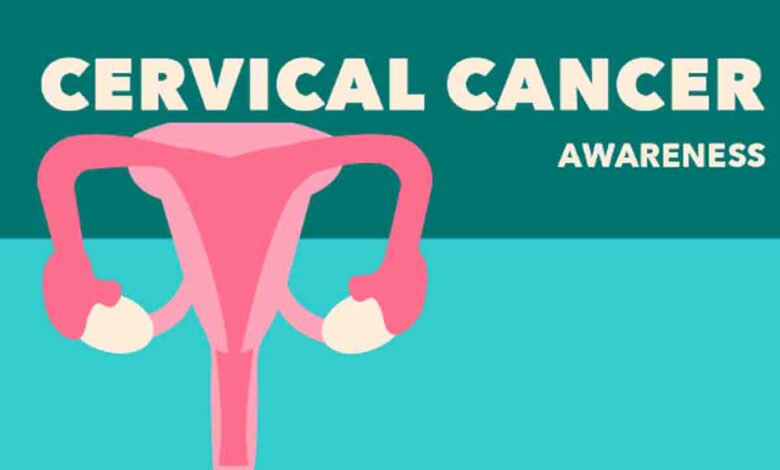Poor sexual hygiene & ignorance causing cervical cancer in women

Thursday, 18 July 2024 | MANSI BHAMBRI | DEHRADUN
Several factors including an increase in infections, poor sexual hygiene and lack of awareness contribute to the prevalence of cervical cancer among women, doctors said. They have noted that the risk of developing cervical cancer is becoming more common among women aged 30 to 40 years and those aged 60 years and above. To reduce the likelihood of cervical cancer in older age groups, which typically occurs in the late 60s, doctors emphasised the significant role that sexual behaviour and hygiene habits play.
The head of the department of Obstetrics and Gynaecology at the Government Doon Medical College (GDMC) hospital, Dr Chitra Joshi said that the prevalence of cervical cancer among women is increasing. However, before making any claims about it, raising awareness about cervical cancer among women and girls is crucial. She said that cervical cancer is often caused by factors including infections, particularly the human papillomavirus (HPV), poor sexual hygiene, lack of awareness about sexual behaviour and engaging in multiple sexual partnerships. She further said that cervical cancer is more common among lower-income groups who may not have sufficient knowledge or resources to maintain sexual hygiene. Stressing the importance of early detection, she highlighted symptoms like irregular bleeding apart of the menstruation cycle, lower abdominal pain, backache, abnormal discharge and foul odour during discharge. Anyone experiencing these symptoms should seek medical advice promptly, she said. “Preventing cervical cancer includes improving sexual behavior, maintaining sexual hygiene, remaining in committed relationships and seeking immediate medical attention for any infections,” said Joshi.
She further emphasised that all women undergo regular screenings with a gynaecologist to prevent cervical cancer. Being aware of these factors can also aid in preventing the disease, she said.
Further, a gynaecologist Dr Sujata Sanjay emphasised that multiple births and an increased incidence of infections are crucial factors contributing to the higher risk of cervical cancer among women. Common symptoms of cervical cancer include white discharge, irregular bleeding, spotting and lower abdominal pain. She noted that women over the age of 60 are more susceptible to this ailment. To prevent this, parents ensure that they should take their daughters to the hospital to inject the cervical cancer vaccine when they are in class IX or XII. In addition, practicing good sexual hygiene and seeking proper treatment can help prevent the progression of cervical cancer, she added.






